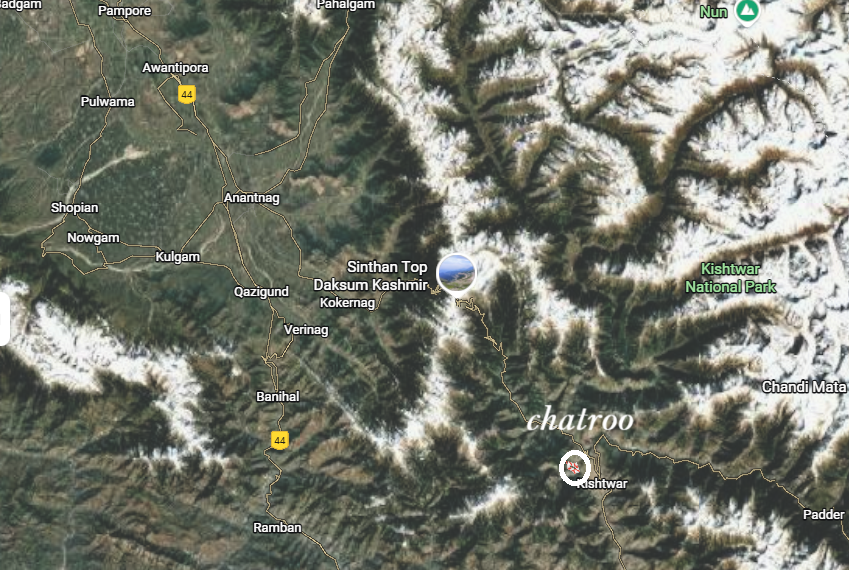Backed by Pakistan-based handlers, terrorists ambush security forces in Jammu and Kashmir’s Kishtwar. India’s counter-terror policy enters a new phase under fire.
BY Pravin Kumar
Terror Returns to Kashmir a Month on: Kishtwar Attack Tests India’s New Doctrine on Terror
Jammu: May 22, 2025: Exactly one month after the Pahalgam massacre, which claimed 26 lives in Baisaran Valley, India’s newly declared doctrine—that every act of terror will be treated as an act of war—was put to the test. On Thursday, a group of terrorists, believed to be backed by Pakistan-based handlers, launched another deadly assault, this time in the Chhatru area of Jammu and Kashmir’s Kishtwar district.
The attack triggered a fierce gunfight with a joint security team led by the Indian Army, resulting in the death of one soldier. At least four terrorists are believed to be trapped in the rugged Singhpora area, as the operation—code-named Operation Trashi—enters a critical phase.
Though Prime Minister Narendra Modi has not yet issued a statement on the Kishtwar encounter, the government’s May 10 policy shift declaring all terrorist acts as acts of war suggests a robust strategic response may be forthcoming. This shift has already manifested in the suspension of the Indus Waters Treaty and the downgrading of diplomatic ties with Pakistan.
READ: Symbolism vs Silence: Manipur’s Uneven Outrage Over Press Freedom
Thursday’s attack took place during a coordinated cordon and search operation involving the Indian Army, Jammu and Kashmir Police, and paramilitary forces. Official sources said additional troops were rushed in as the terrorists used Kishtwar’s dense forests and steep ridgelines—terrain similar to that exploited during the Pahalgam attack—to evade capture.
The April 22 Pahalgam massacre, carried out by five operatives linked to Lashkar-e-Taiba and The Resistance Front, involved execution-style killings of 26 civilians, mostly tourists. Indian intelligence agencies blame Pakistan’s Inter-Services Intelligence (ISI) for orchestrating that assault. In response, India launched retaliatory airstrikes under Operation Sindoor on May 7, targeting terror infrastructure in Pakistan and Pakistan-occupied Kashmir.
🚨⚡ 02 terror¡st were k¡!!ed and 1 army trooper Sep. Sandeep k¡!!ed in an ongoing Enc0unter in Jammu Kashmir’s Singhpora Chatroo area of Kishtwar.#Kishtwar #KishtwarEncounter #Kashmir #IndianArmy https://t.co/bSPUActuYC pic.twitter.com/BIJfv2ec4g
— OsintWorld 🍁 (@OsiOsint1) May 22, 2025
Early intelligence links the Kishtwar attackers to the same cross-border network. Some operatives are suspected to have received elite training from Pakistan’s Special Services Group. The National Investigation Agency, still probing the Pahalgam attack, has intensified efforts to trace local support networks and overground workers aiding militants.
The renewed violence has reignited fears of a deteriorating security climate in Jammu and Kashmir and exposed persistent vulnerabilities in intelligence and coordination.
As the operation continues in Chhatru, the nation mourns the loss of another soldier. With helicopters and reinforcements deployed, security forces remain locked in a dangerous standoff in unforgiving terrain—fighting not just terrorists, but a proxy war that India now calls by its name.













